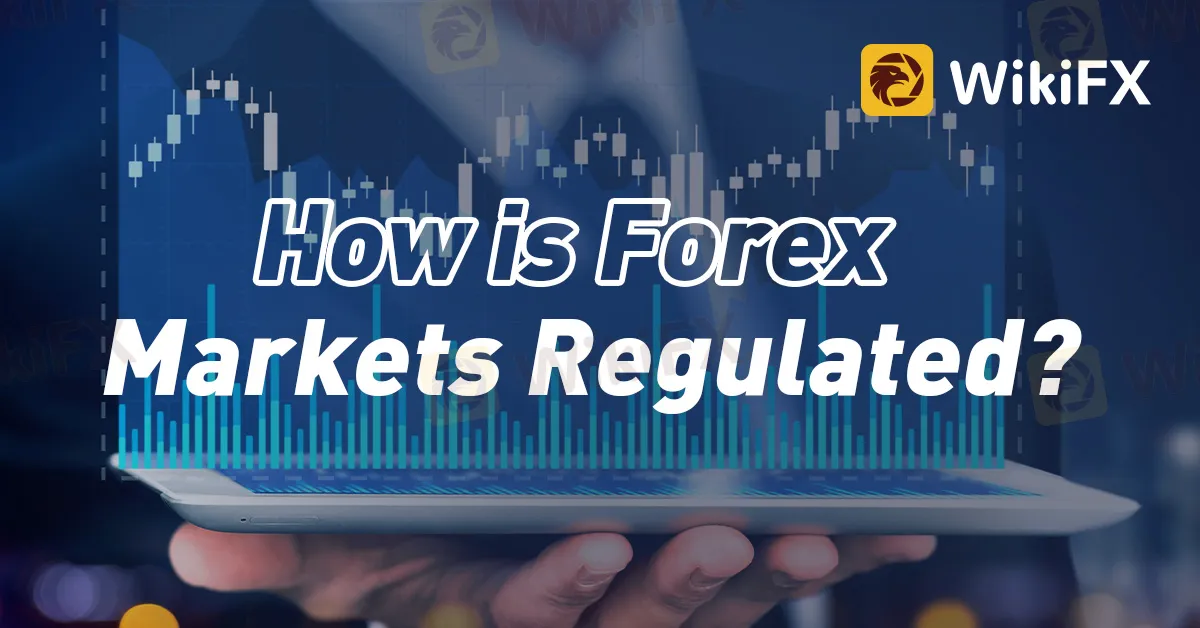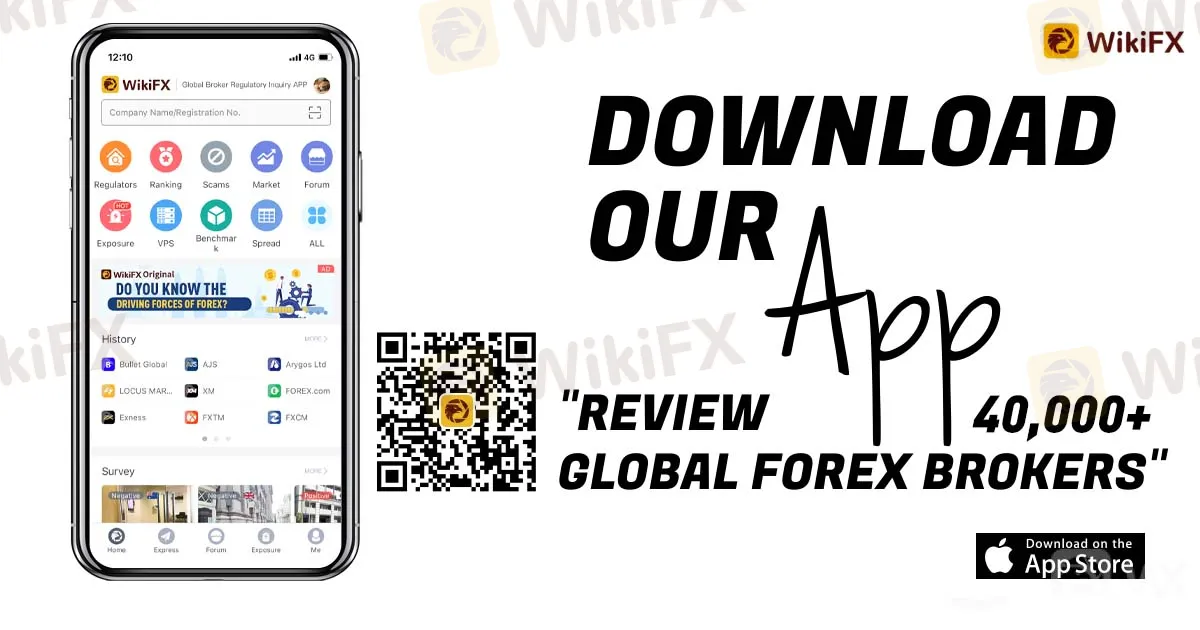简体中文
繁體中文
English
Pусский
日本語
ภาษาไทย
Tiếng Việt
Bahasa Indonesia
Español
हिन्दी
Filippiiniläinen
Français
Deutsch
Português
Türkçe
한국어
العربية
How are Forex Markets Regulated?
Abstract:As a decentralized and international market, forex trading requires effective regulation to ensure fair practices, protect investors, and maintain market stability. In this article, we will explore how forex markets are regulated.

Introduction
As a decentralized and international market, forex trading requires effective regulation to ensure fair practices, protect investors, and maintain market stability. In this article, we will explore how forex markets are regulated.
The Role of Regulatory Authorities
Regulatory authorities play a crucial role in overseeing and supervising the forex market. These agencies operate at both the national and international levels and are responsible for enforcing regulations, licensing forex brokers, and monitoring market participants. Some prominent regulatory authorities include:
National Regulatory Bodies
Each country has its own regulatory body that oversees forex trading within its jurisdiction. Examples include the U.S. Commodity Futures Trading Commission (CFTC) and the Financial Conduct Authority (FCA) in the United Kingdom. These bodies establish rules and guidelines, conduct inspections, and address investor complaints.
International Regulatory Organizations
Organizations such as the International Organization of Securities Commissions (IOSCO) and the Financial Stability Board (FSB) coordinate efforts among national regulatory bodies to establish international standards and promote regulatory harmonization across borders.
Licensing and Compliance
Forex brokers, the intermediaries facilitating currency trading, must adhere to strict regulatory requirements to obtain licenses. Regulatory authorities evaluate the broker's financial stability, operational procedures, risk management systems, and client fund protection measures. Compliance with anti-money laundering (AML) and know-your-customer (KYC) regulations is also mandatory to prevent illicit activities.
Segregation of Client Funds
Regulated forex brokers are required to segregate client funds from their own operational accounts. This separation ensures that client funds remain protected in the event of a broker's insolvency. Regulators monitor brokers' adherence to these rules and conduct periodic audits to verify compliance.
Transparency and Disclosure
Regulated forex brokers are obligated to provide transparent and accurate information to their clients. This includes disclosing risks associated with forex trading, transaction costs, leverage terms, and potential conflicts of interest. Regulatory bodies enforce these transparency standards to protect investors from misleading or fraudulent practices.
Risk Management and Leverage
To protect traders from excessive risk-taking, regulatory bodies often impose limits on leverage, which determines the ratio of a trader's capital to borrowed funds. By restricting leverage levels, regulators aim to safeguard traders from incurring significant losses beyond their invested capital.
Investor Protection
Regulatory authorities often have mechanisms in place to handle investor complaints and disputes with forex brokers. These processes may involve mediation, arbitration, or legal action, ensuring that investors have recourse when faced with unfair treatment or fraudulent practices.
Market Surveillance
Regulatory bodies actively monitor the forex market to detect and prevent market manipulation, insider trading, and other illegal activities. They employ sophisticated surveillance systems and collaborate with financial institutions and law enforcement agencies to maintain market integrity.
Conclusion
Effective regulation is vital for maintaining trust and stability in the forex market. Regulators oversee brokers' compliance with stringent requirements, promote transparency, and safeguard investor interests. By establishing a robust regulatory framework, authorities strive to create a level playing field, protect traders, and foster the long-term sustainability of the global forex market.

Disclaimer:
The views in this article only represent the author's personal views, and do not constitute investment advice on this platform. This platform does not guarantee the accuracy, completeness and timeliness of the information in the article, and will not be liable for any loss caused by the use of or reliance on the information in the article.
Read more

eToro Launches Global-Edge Smart Portfolio: A Balanced Approach to Growth and Stability
Online trading platform eToro has recently unveiled its latest investment offering—the Global-Edge Smart Portfolio. This new addition to eToro’s extensive portfolio options provides investors with a balanced approach to investing by combining global stocks and bonds, tailored for those looking for growth and stability.

Webull Introduces 24/5 Overnight Trading to Extend U.S. Market Access
Webull has announced the launch of a new 24/5 Overnight Trading feature for U.S. users, developed in partnership with Blue Ocean ATS. This feature allows Webull’s clients to trade stocks and ETFs outside traditional market hours, from 8:00 pm to 4:00 am ET, Sunday through Thursday.

Malaysian Trader Loses Over RM1.6 Million in Investment Scam via WeChat
A 56-year-old trader from Gombak, Malaysia, recently lost more than RM1.6 million in a sophisticated online investment scam orchestrated through the popular messaging application, WeChat.

Prop Trading vs. Algo Trading: How They Shape Modern Markets
This article will provide an overview of these two strategies, examining what sets them apart and why each has its place in today’s markets.
WikiFX Broker
Latest News
ATFX Expands LATAM Presence with New Mexico Office
CySEC Warns against Public Review Websites
Former Alameda Executives Hand Over Assets in FTX Creditor Recovery Effort
Tradeweb and TSE Partnership Enhances Access to Japanese ETFs
ThinkMarkets Expands Mobile Integration with TradingView
Binance Ordered to Unmask Account Holder in €186,000 Crypto ‘Pig Butchering’ Scam
Will Trump’s Second Term Drive Economic Growth Through Tax Cuts?
InstaForex Lucky Trader Contest
What Happens if A Broker Goes Bust?
Is WesternFX a Reliable Broker?
Currency Calculator


